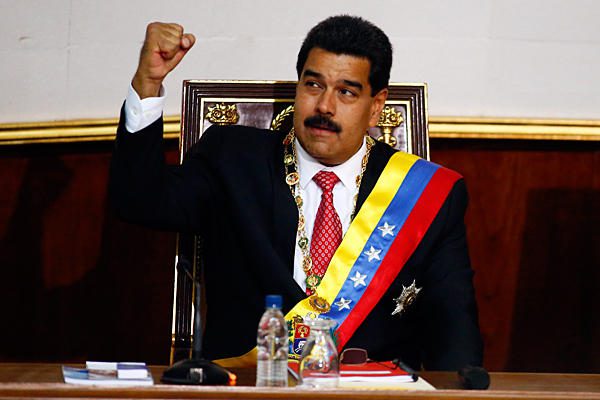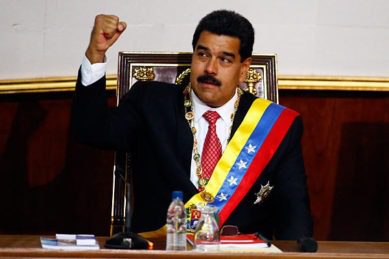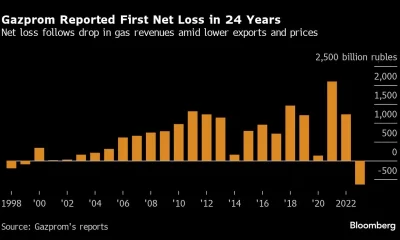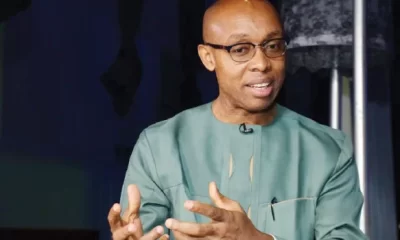National Issues
Venezuela/Nigeria: Similar situations and different outcomes -By Jude Fejokwu

Venezuela on average has a daily oil production 50% higher than Nigeria. Venezuela is the top oil producer in South America and Nigeria is the top oil producer in Africa. Both countries’ revenues are largely dependent on income from oil exports. Both countries’ revenues have nosedived as oil prices hover closer to the $40 per barrel mark.
Both countries are battling with currency devaluation/depreciation and supply of dollars by the dollar earning governments not being enough to meet demand from dollar users. Venezuela’s foreign reserves are about 33% less than Nigeria’s at $22 Billion though Venezuela produces more barrels of oil per day than Nigeria. Despite this, the Venezuelan Bolivar is still more highly valued than the Nigerian Naira as One Bolivar is equivalent to about Thirty Naira presently.
Venezuela has more stringent capital controls than Nigeria and is grappling with inflation in excess of 60% as citizens seek dollars to combat hyperinflation. Nigeria’s inflation is still in single digits. There has also been multiple street protests against the rule of President Maduro that is barely two years old.
So, how are their respective stock markets faring amidst all of the above economic turmoil?
As at January 15th, 2015 (Source: Bloomberg)
Venezuela: YTD Return: +1.82%
52-week Return: +45.87%
Nigeria: YTD Return: -15.5%
52-week Return: -27.04%
Nigeria’s market is not falling strictly because of falling oil prices, currency devaluation and depreciation etc. It runs deeper than that.
The Nigerian people are the main cause of its market decline; the valid reasons proffered above are ancillary.
Venezuela has multiple exchange rates, the lowest one is provided to importers of food, medicine and other designated essential services. Nigeria has nothing of the sort.
Nigerians that have the power to make the country a better place for its effusive citizens are only concerned with making their account balances better and those of their inner circle. Everybody else has to make do with scraps from the top. Reason? A combination of selfishness and narcissism.
Diesel prices (dully deregulated by the way) are still at the prices they have been at six months ago (within a 5% margin) despite oil prices having dropped about 60% since June 2014. What is the hope for deregulation of gasoline in Nigeria when deregulation is synonymous with stagnancy? Gasoline prices change almost daily across the United States as oil prices fluctuate. If oil prices rise to $150 per barrel, you can be rest assured that downstream energy companies will adjust their diesel prices upward immediately in Nigeria. What is the hope for the common man in Africa’s most populous country and largest economy with everybody (at the top) looking upward and nobody looking down where it really matters and positive change can run deep?
The world is talking about Climate Change; Nigeria should be talking about Self Change.
Honest facts about situations are hated and the sensitivity to the truth continues to heighten. People steal money and are applauded in the public and private sector (behind closed doors) while the reality of things on the ground no one wants to hear of it. If those at the top do not want to hear the true state of affairs, then, they should change it. Truth is Reality. Many people in Nigeria appear more in tune with reality TV than the reality of affairs within the country.
Tesco supermarket in the U.K. was recently reported to have overstated its profits by 250 million pounds and the company is currently going through sweeping changes at the top and how it does business.
I do not know if any analyst spotted these concerns before the unfortunate situation came into the public domain. I do know that the U.K.’s regulatory oversight system is set up to protect the vulnerable to the best of its ability and not the powerful individuals at the top of the ladder running companies.
In Nigeria, I can almost guarantee you that the unfortunate situation will be denied and hushed up and the analyst will be termed a ‘rebel” while the upstanding character of the owners of the company and the board members will be plastered all over the news. People over here want to be rewarded for doing the wrong thing, which leaves little room for people to be rewarded for doing the right thing.





















